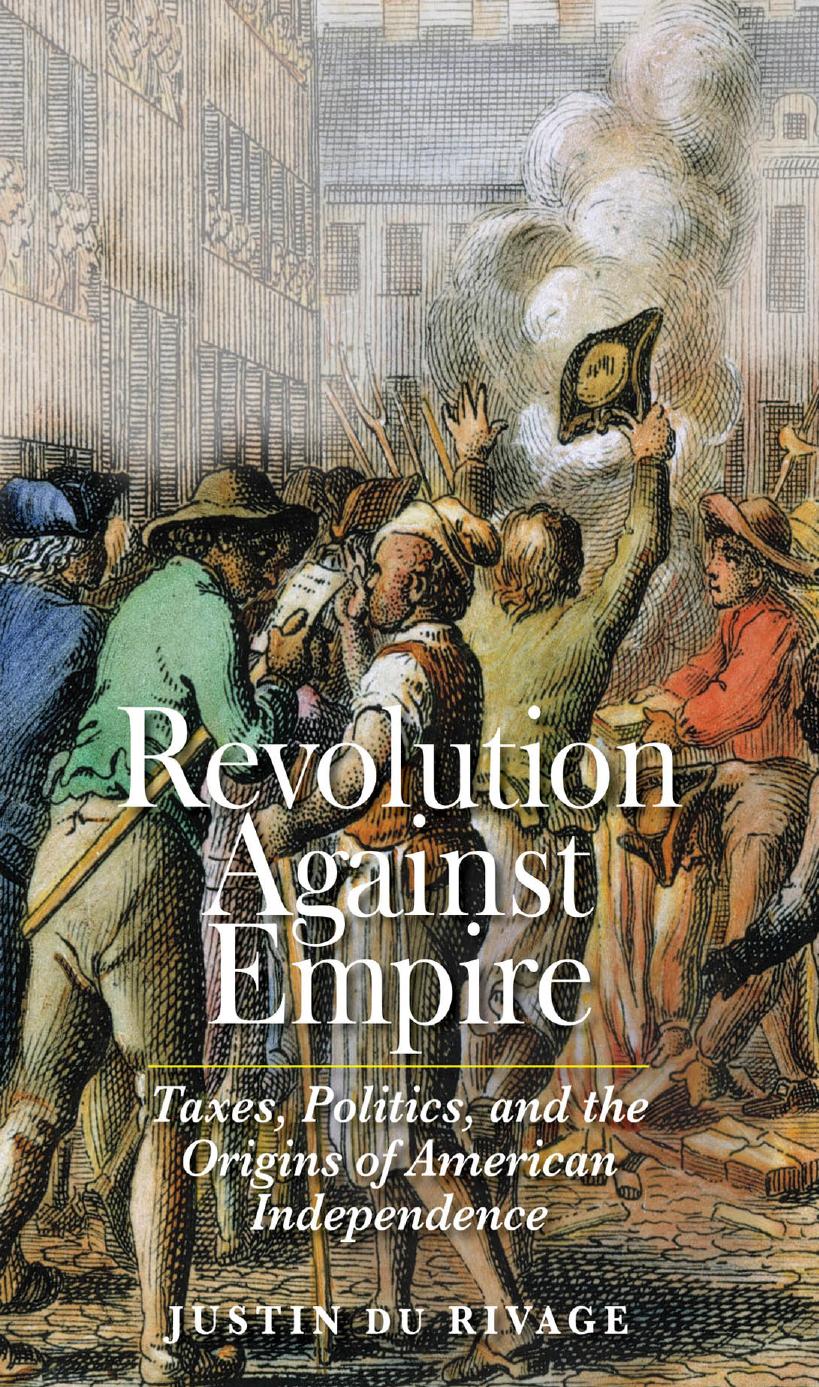Revolution Against Empire: Taxes, Politics, and the Origins of American Independence by Justin du Rivage

Author:Justin du Rivage [Rivage, Justin du]
Language: eng
Format: epub, pdf
ISBN: 9780300214246
Google: qUwmDwAAQBAJ
Amazon: 0300214243
Publisher: Yale University Press
Published: 2017-01-15T00:38:39.068000+00:00
The Politics of Economic Independence
Facing a concerted campaign for authoritarian reform that spanned the empire, colonial radicals responded forcefully and decisively. The Sons of Liberty organized the harassment of customs commissioners; towns and cities remonstrated; and colonial legislatures lobbied Parliament through their agents. Indeed, the opposition became so intense that in October 1769 a crowd of over a thousand chased John Mein through the streets of Boston, forcing him to flee to England. And while radicals ostensibly sought to limit disordered violence, John Adams dismissed attacks on mobs as a “trite topic of declamation and invective, among all the ministerial people, far and near.” Aggressive resistance was necessary, Richard Henry Lee explained, because silence would allow the “poison” of parliamentary taxation to destroy the “body politic.”29 The boycott movement was the most sustained effort in that cause. Following a strategy that appeared to work in the Stamp Act crisis, groups of citizens, starting with Boston’s merchants, organized local nonimportation agreements and appealed to their fellow colonists to stop consuming British manufactures. Newspaper writers such as “Philo-Patriae,” “Atticus,” and “Monitor” urged colonists to form nonimportation associations. That protest, as Tim Breen observes, “invited people to think about political life in more inclusive terms,” bringing people from a variety of different backgrounds together in political action.30 Only by working together, following the example of other colonies that had joined the boycott, could radicals succeed in overturning the Townshend Duties. Yet, this proved an uphill struggle: merchants were reluctant to support a movement that would harm their businesses. Philadelphia’s mercantile community initially withheld support for Boston’s boycott, expressing concern that nonimportation would “injure us in the opinion of our friends, and add strength to our opponents.” Such foot dragging meant that it took Pennsylvania until the end of 1768 to join the movement while Virginia waited until March of the following year. Indeed, moderation led radical colonists to condemn the “timid and selfish policy” of merchants while insisting that resistance could only succeed through unity and action.31
Radical Whigs’ conviction that nonimportation was the only way to force Britain to repeal the Townshend Duties and repudiate parliamentary taxation depended on their long-standing understanding of imperial political economy. Even after years of tumultuous protest, colonists still believed that they could demonstrate Britain’s economic dependence on American trade and avoid accusations of riot and rebellion by refusing to buy British goods. A boycott would also make the colonial cause popular in Britain, giving the lie to the argument that the mother country’s burdens would “be lessened in proportion as ours are increased,” as the Virginia radical George Mason put it in 1769. Believing that they could bring Britain’s leaders to their senses by proving their value to the empire as consumers, radicals urged temporary pain in order to secure their prosperity. Americans could easily adapt to the hardship of nonimportation, Mason explained, because “a man may be as warm in a coat that costs but ten shillings as in one that cost ten pounds.” While the
Download
Revolution Against Empire: Taxes, Politics, and the Origins of American Independence by Justin du Rivage.pdf
This site does not store any files on its server. We only index and link to content provided by other sites. Please contact the content providers to delete copyright contents if any and email us, we'll remove relevant links or contents immediately.
Zero to IPO: Over $1 Trillion of Actionable Advice from the World's Most Successful Entrepreneurs by Frederic Kerrest(4525)
Machine Learning at Scale with H2O by Gregory Keys | David Whiting(4295)
Never by Ken Follett(3937)
Harry Potter and the Goblet Of Fire by J.K. Rowling(3848)
Ogilvy on Advertising by David Ogilvy(3607)
Shadow of Night by Deborah Harkness(3361)
The Man Who Died Twice by Richard Osman(3072)
Book of Life by Deborah Harkness(2931)
The Tipping Point by Malcolm Gladwell(2914)
Will by Will Smith(2911)
0041152001443424520 .pdf by Unknown(2843)
Purple Hibiscus by Chimamanda Ngozi Adichie(2827)
My Brilliant Friend by Elena Ferrante(2824)
How Proust Can Change Your Life by Alain De Botton(2807)
How to Pay Zero Taxes, 2018 by Jeff A. Schnepper(2646)
Hooked: A Dark, Contemporary Romance (Never After Series) by Emily McIntire(2550)
Rationality by Steven Pinker(2352)
Can't Hurt Me: Master Your Mind and Defy the Odds - Clean Edition by David Goggins(2324)
Borders by unknow(2304)
